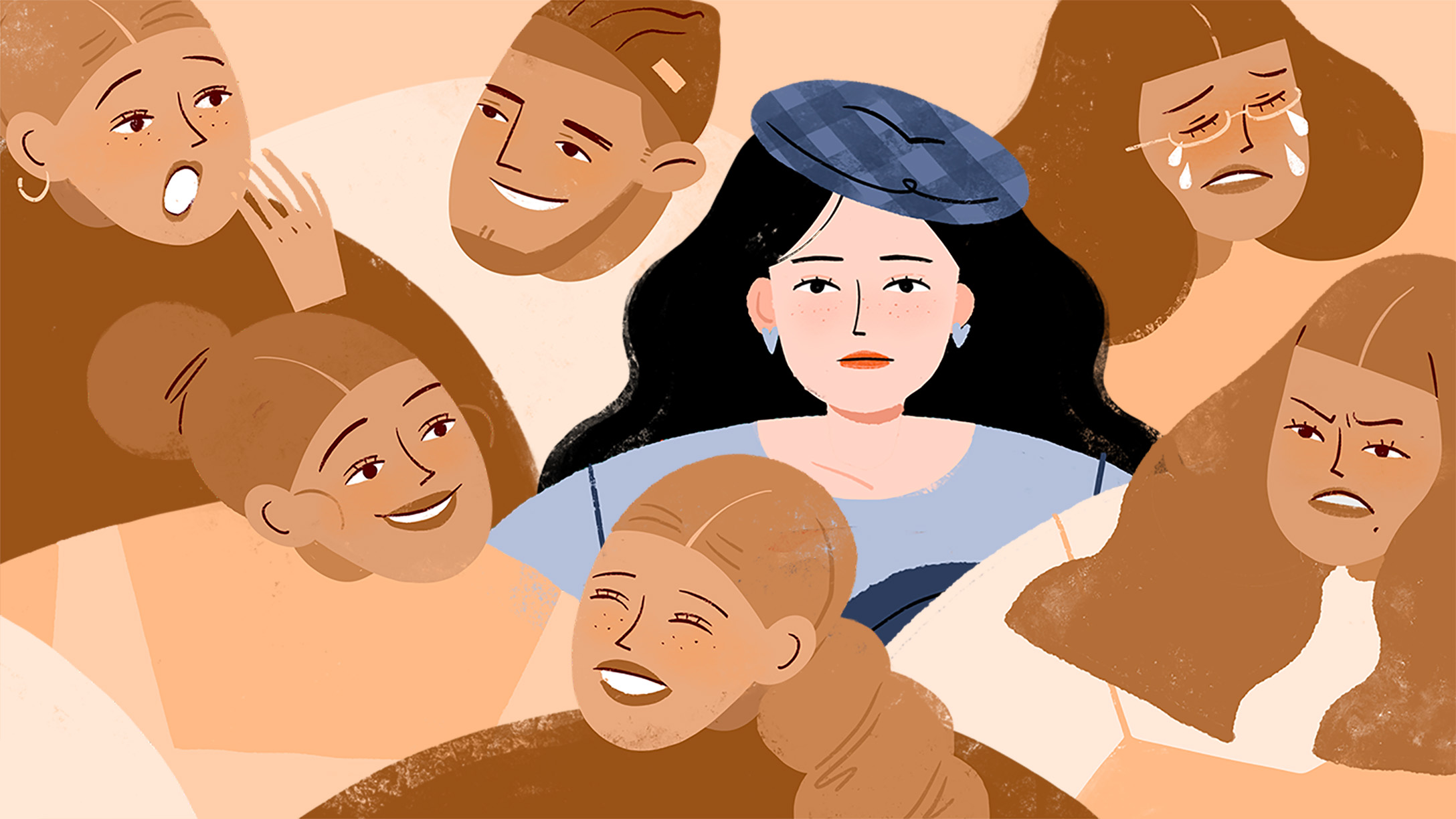
Post-traumatic stress disorder (PTSD) is a serious mental illness that affects 5% of all people in the US at any given time. According to the Posttraumatic Stress Disorder (PTSD) Alliance, 70% of people will experience a traumatic event at some point in their lives. About 20% of those individuals will develop PTSD. Some will recover to the point that they are no longer diagnosed with the illness. Others will struggle with it for their entire lives.
PTSD is a pattern of emotions, behaviors, and psychological disturbances that develop in response to a single traumatic incident or a series of incidents. The classic picture of PTSD is the veteran who experienced terrible things during war. However, anyone can develop the illness after experiencing anything from a car accident to an assault to the sudden death of a loved one.
If you've been through a major trauma you can't seem to get out of your head and you experience at least a couple of the following symptoms, you should absolutely speak to a mental health professional.
Signs and Symptoms of PTSD 1. Intrusive Thoughts or Flashbacks of the Traumatic Event

Intrusive thoughts or flashbacks are more than just memories. Intrusive thoughts are any thoughts or memories that seem to force themselves into your mind unbidden, causing anxiety and distress. PTSD flashbacks are intensely vivid memories that can be so strong that you lose your sense of reality and think you're back at the moment of trauma.
2. Recurring Nightmares

Many people experience recurring nightmares. If the nightmare is about a specific traumatic incident, this can be a sign of PTSD. This is especially true if the nightmares interfere with your sleep or leave you afraid to go to sleep at all.
3. Emotional Numbness

Trauma can often cause intense, distressing emotions. Sometimes, when the brain is overwhelmed with these feelings, it will block out emotions altogether. It's quite common for people to experience periods when they can't seem to feel anything at all after a traumatic event. If this emotional numbness persists, you might have PTSD.
4. Avoidance of Any Reminder of the Trauma

Most people don't like reminders of something traumatic. However, if you spend so much time and energy avoiding any reminder of a traumatic event that it interferes with your life, that is a sign of mental illness. For example, being unable to watch any new TV show or movie because it might contain blood or an image of a gun could be a sign of PTSD.
5. Difficulty Concentrating

Difficulty concentrating can be a sign of many different illnesses, both physical and mental. It might simply be a result of exhaustion. However, if it's combined with other symptoms, it can point to post-traumatic stress.
6. Jumpiness and Hypervigilance

Hypervigilance is a common symptom of PTSD. It refers to a constant state of mental arousal in which you're on the lookout for trouble, either consciously or unconsciously. Being easily startled is a sign of hypervigilance — it can mean you're on edge all the time and you slip too easily into fight-or-flight mode.
7. Irritability

PTSD is technically classified as an anxiety disorder, but fear and nervousness are not necessarily the primary emotions people with this illness experience. You might find yourself becoming irrationally angry when startled or reminded of the traumatic incident, or for no apparent reason. Sudden, aggressive anger is definitely a sign that something is psychologically wrong.
8. Psychological Triggers That Cause Intense Distress

There is a lot of casual use of the term "trigger" these days, but being triggered is a real thing that is particularly relevant to people with PTSD. In terms of this illness, a trigger is any reminder of the traumatic event that creates significant emotional distress and/or other symptoms. A trigger can cause visceral flashbacks, panic attacks, a spiral into lasting depression, or any number of disruptive events.
9. Memory Gaps

When a traumatic event occurs, the human brain goes into overdrive attempting to protect itself from death, putting all available resources into its defense. This is why memory disruption is so common in people with PTSD. The repression of memories is also a defense mechanism that the brain uses — one that can be so intense that you have gaps in your memory that are days, weeks, or even years long.
10. Strong, Persistent Negative Beliefs About Yourself or the World

A traumatic event, particularly one that occurred during childhood, can teach the brain that the world is an unsafe place. This can lead to anxiety or depression, as well as PTSD. Self-blame is also very common among PTSD patients and can spiral into general self-hatred.
11. Blaming Yourself for the Traumatic Event

It might seem counterintuitive, but blaming oneself for a traumatic event is an incredibly common reaction. This could be an attempt to convince yourself that there are steps you can take to prevent it from happening again. If your brain constantly tells you, "If only I would have done this one thing differently," it could be a sign of PTSD.
12. Feeling Detached or Estranged From Other People

People with PTSD often experience some level of dissociation. This is a mental state in which you feel detached from reality, almost like you're watching a movie about someone else's life. This (and other symptoms) can make it difficult to relate to people, and people in your life might find that you're a different person from the one they remember.
13. Reckless or Self-Destructive Behavior

Some individuals with PTSD, rather than avoiding anything that might be dangerous, will engage in reckless behavior. You might also go back and forth — being afraid to do anything one day and driving like a maniac the next. Self-hatred can also compel these individuals to engage in self-destructive behaviors such as drug/alcohol abuse or outright self-harm.
Hope for Recovery

PTSD is a terrible illness that can make life feel unlivable. It's for this reason that many combat veterans who suffer from PTSD end up homeless. For some people, PTSD makes holding a job impossible. However, a combination of therapy and medication has proven to be very effective treatment for many people. You only need to take the first step.
If you believe you might be suffering from PTSD, talk to a doctor. It's a well-known illness, so any health professional should be able to get you on the right track.




